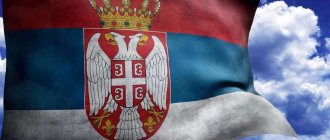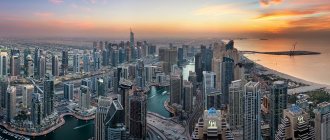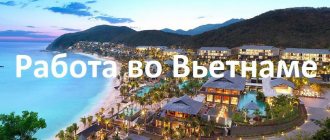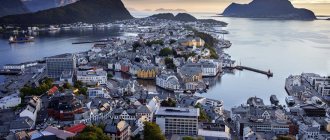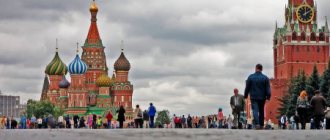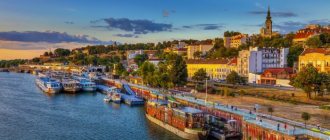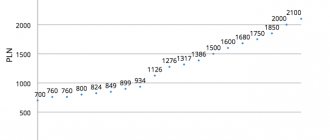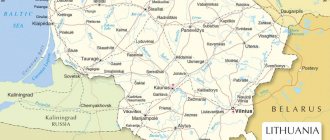Requirements for an immigrant
A foreigner applying for a residence permit in Serbia must not:
- be associated with terrorist or extremist organizations;
- be on the international wanted list;
- be disabled;
- suffer from diseases dangerous to others (tuberculosis, AIDS);
- have a criminal record;
- be an intelligence officer or military officer in your homeland.
An immigrant is required to provide reliable information about himself and family members moving with him.
Attitude towards Russians
The Serbs' love for Russians, unfortunately, is fading away. And although they still remember Yugoslavia and are grateful to Russia for its help, Russian culture is gradually losing ground. Our language has moved to 4th place in popularity, now only every 9th schoolchild in the country studies it.
A group of Russophiles in the country is fighting to preserve the Cyrillic alphabet, periodically staging protests. However, most of them are representatives of the older generation. Now the country's population is reaching out to the West for the English language.
Review of a Russian about Serbia. Warning, profanity 18+
In Serbia, there is no need to hide your nationality, especially if you are from Russia. On the contrary, our compatriots are always warmly welcomed and loved. Many representatives of the older generation of Serbs are nostalgic for their communist youth and still listen to Russian patriotic songs. They are not averse to asking the migrant about everything - modern Moscow, everyday life, habits.
Reviews of Russian migrants about life in Serbia
We’ll finish our review with video reviews from Russian migrants. Some of them are happy with everything, others are not. Whose words are more true and who is right - you will have to decide. Russian immigrants talk about the pros and cons of life in Serbia.
Subscribe to Migrantu Mir: Yandex News.
Standard of living in the country
After the collapse of Yugoslavia and military operations on the territory of modern Serbia, the country's economy was in decline. The republic is gradually emerging from the crisis. However, compared to other European countries, the standard of living in Serbia remains low. It is indicated by:
- GDP. Gross domestic product increases by no more than 1-2% per year.
- Wage. The average figure does not exceed 46 thousand Serbian dinars (about 390 euros).
- External debt of the state. The amount of debt reaches 26 billion euros.
- Pensions. The average old-age payment in the country is 220 euros.
The monthly salary does not exceed 390 euros.
The improvement in the well-being of the Serbs is evidenced by:
- Safety. There are about 1.2% of murders per year per 100 thousand inhabitants of the republic. In the Russian Federation this figure exceeds 10%.
- Free medicine and education. The country has adopted a compulsory medical insurance system. Citizens have the right to free education in schools. Budget places are available to young people in Serbian universities.
Advantages of emigrating to Serbia
Serbs are southern Slavs, close to Russians in language and culture. The similarity of mentality often becomes a decisive factor when choosing a country for moving to permanent residence.
Loyal attitude towards Russians
Most Serbs consider Russians to be a brotherly people. Owners of small shops and taxi drivers offer discounts to Russians. Immigrants and travelers do not face a language barrier. Many Serbs speak Russian well.
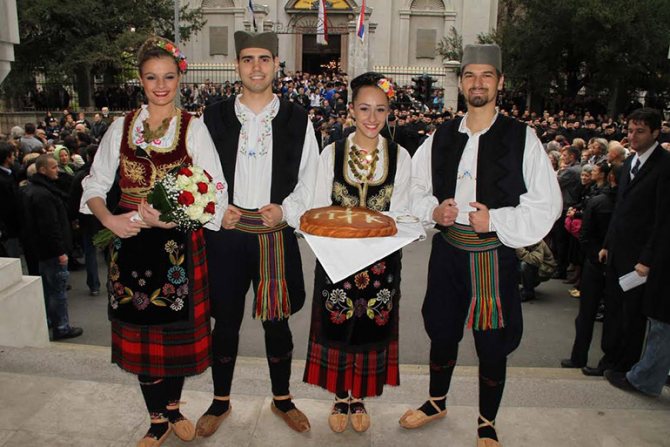
Most Serbs are loyal to Russians.
Easy attitude to life
Despite the hostilities, the crisis and the low standard of living, the Serbs remain a cheerful and friendly nation. Residents of the country are not characterized by isolation. They like to spend their free time with friends and family. Serbs do not strive for luxury.
Even wealthy people prefer to live in village houses rather than in expensive metropolitan apartments.
Easy moving procedure
Citizens of the Russian Federation can stay in Serbia without a visa for 30 days. For this reason, the easiest way for Russians to immigrate is to cross the border every month with a view to subsequently entering the country. This allows you to reset your stay in the republic and permanently live in Serbia legally.
Good attitude towards children
Serbs treat well not only their relatives, but also other people's children. After a divorce, both parents take care of the child. Often fathers in court defend the right to raise their son or daughter. Children are more likely to be given a seat on public transport than older people.
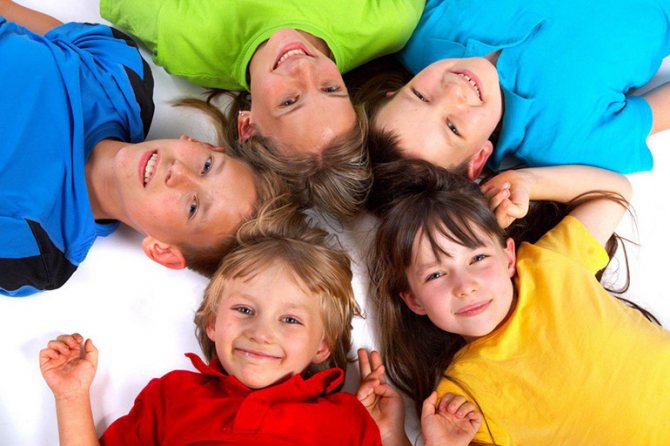
Serbs are good with children.
Pleasant climate
Serbia is suitable for Russian citizens who would like to move to a country with a warm climate. In the winter months, the thermometer does not drop below +6ºС. Frosty days are rare. Average off-season temperature: +15…+25ºС. However, summers can be hot. In July and the first half of August, the thermometer often rises to +43…+46ºС.
Similar language group
Russian and Serbian belong to the same group, making it easier to learn the language of this country than English, German or French. Some words do not need translation, for example:
- Where);
- jezik (tongue);
- ours (ours);
- Italian (Italian);
- evropske (European).
Permanent residence in the country and acquisition of citizenship
Residence permits are granted for different periods. It is predetermined by the grounds on which it was issued. But this status is renewable.
Before applying for citizenship, you must obtain permanent residence in Serbia. It is given after 5 years of stay in the country with a residence permit.
Documents for permanent residence
To obtain this status you will need approximately the same package of papers as for a residence permit. The main thing is to confirm that there are reasons to continue to stay in this country. Therefore, it is this question that you should think carefully about before going to live in Serbia. For example, there is an option to apply for permanent residence to reunite with your family.
Read also: Life in Serbia
Disadvantages of living in Serbia
Before moving to Serbia, it is necessary to evaluate the disadvantages of living in this country and the difficulties that an immigrant will face.
Slowness in business
Residents of the state lead a measured lifestyle. Rushing someone is considered impolite. Being 20 minutes or more late is not a violation of etiquette. Serbs often take long breaks while working.
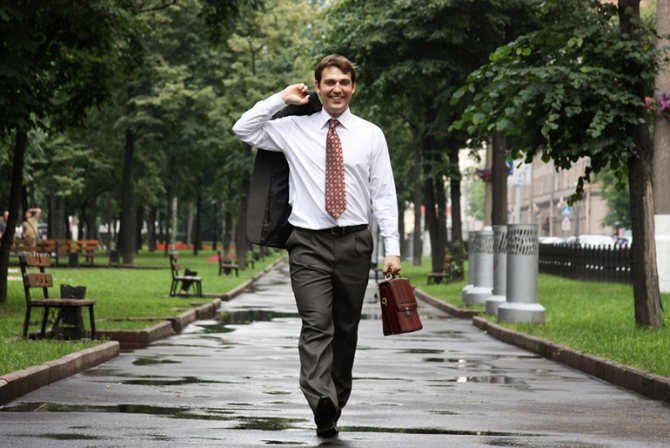
Serbs lead a leisurely lifestyle.
High unemployment rate
After the crisis of the late 1990s. The unemployment rate in the country has risen to 25%. Over 20 years, the authorities were able to reduce the number of unemployed to 12%. However, it is still difficult for a foreigner to fill a vacant position. Unskilled immigrants can find work in agriculture and the service sector.
Expensive Social Security
Prices for fuel and utilities in Serbia are higher than in Russia. The cost of gasoline can reach 90 rubles per liter. To save on utility bills, you need to choose housing without central heating, the monthly fee for which can reach 100 euros. Renting a one- or two-room apartment costs up to 800 euros per month.
Developed bureaucracy
The bureaucracy in Serbia makes life difficult not only for foreigners, but also for local residents. If the package of documents is missing one certificate, it will not be accepted. It is advisable to contact the organization through its website. The online resource contains all the information required by the applicant, lists of documents, etc. However, in order to use the service, you must speak Serbian.
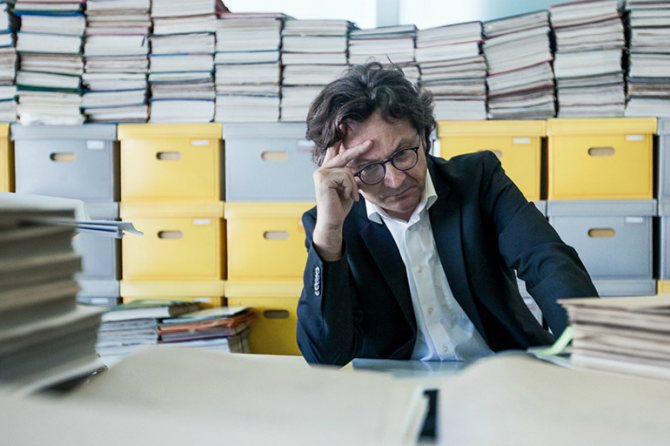
Bureaucracy makes life difficult for foreigners and locals.
Lack of visa-free regime with other countries
An immigrant who has received a residence permit in Serbia does not have the right to visit other countries without a visa. The document can only be issued at the consulate of a particular state in Belgrade.
Rigid patriarchy
In small settlements, a patriarchal way of everyday life is observed. The man is considered the head of the family. The wife must submit to his will. The husband does not help his wife raise the children and do housework. Serbian families rejoice at the birth of a son more than the birth of a daughter.
Abundance of immigrants
Despite the fact that Serbia is not considered a country attractive for moving to permanent residence, about 10% of the republic’s population are migrants. In most cases they are Croats. The largest number of immigrants live in Belgrade and other cities where it is easier to find work.
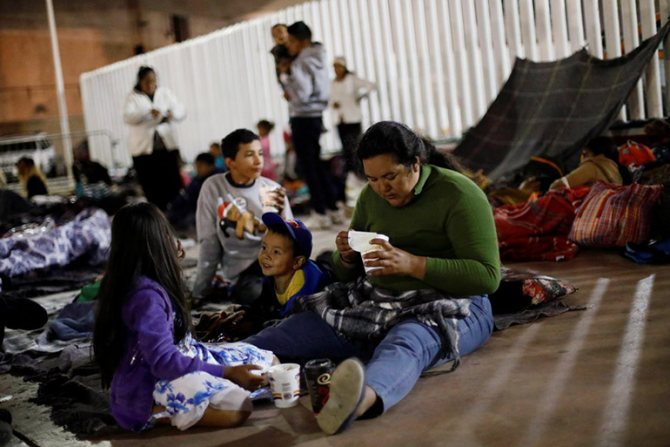
10% of Serbia's population are migrants.
Serbia is used as a transit point by migrants from Middle Eastern countries heading to the EU. Migrants set up tent camps near major railway stations and in border towns. People live in unsanitary conditions, which contributes to the spread of infections. Garbage dumps appear near tent camps. Serbia also accepts Roma deported from the European Union and grants them citizenship.
Lack of usual services
Services familiar to Russians, such as courier services, online stores, etc., are absent or operate with restrictions in the country. There is no car sharing in Serbia. To use the Internet, you need to sign a contract for 1-2 years.
If breakdowns or malfunctions occur, it may take up to 3-4 weeks to resolve them.
Pros and cons of immigration to Serbia
Life in Serbia through the eyes of Russians, as in any state, is not cloudless: there are both obvious pros and cons. Let's start with the advantages :
- Attitude towards Russians. Our peoples have a lot in common: similar mentality and life values. These factors are mentioned in all forums. This is the first thing that attracts Russians to Serbia.
- Other human relations in society. Many immigrants from Russia note that Serbs are open and easy to communicate with.
- Similar language. The Serbian language is not as close to Russian as it might seem at first glance. But Russians who moved to Serbia claim that learning Serbian was quite easy.
- Safety. Immigrants from Russia note the low crime rate in Serbia.
- Quality food products. According to tourists, legends can be made about the cuisine of Serbia. This also applies to products offered on store shelves. Their quality is higher than in Russia.
- Easy conditions for starting your own business. A week is enough to prepare the necessary papers.
- Inexpensive accommodation. This applies to rental housing, services, clothing and products.
- Climatic conditions. The country is warm, with sunny days up to 315 days a year.
- Lots of conditions for relaxation. Despite its small territory, Serbia has a lot of opportunities for all types of recreation. The country has thermal resorts, ski slopes, water parks and zoos, Danube beaches, restaurants, cafes and shopping centers.
Of course, this country also has its disadvantages :
- Unemployment. Despite the fact that the government is trying to reduce the unemployment rate, the figures are still high, around 17-25%. Many Serbian citizens go to neighboring countries to work.
- High cost of utilities.
- Citizens of other countries living in Serbia will need to obtain a Schengen visa to visit European countries.
- The desire to do everything slowly. You can often hear the word “polako” from a Serb. In Serbia it is not customary to rush, so there are often queues, which you will have to get used to.
- The tense situation with Kosovo. Relations with Croatia also cannot be called warm.
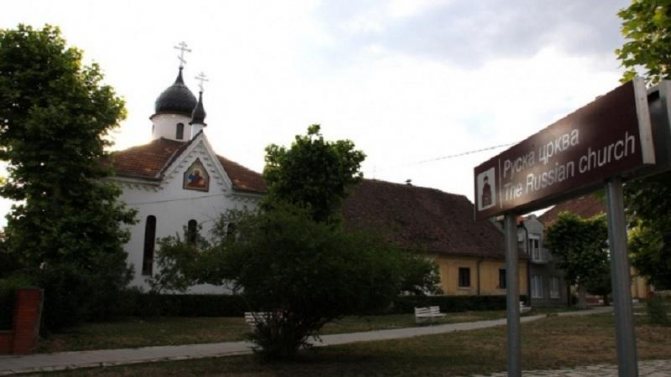
Salary and social sphere
The average salary in Serbia is around 350 euros, and a comfortable life is relatively inexpensive. The cost of living in 2017 was 280 euros. For example, a one-room apartment will cost about 150 euros. Finding accommodation is easy even in the center of Belgrade. But the issue of employment remains unresolved.
Finding a job in Serbia is very difficult. As a rule, you can get a job “through an acquaintance,” but for immigrants there are restrictions here too . An employer will be able to hire a foreigner for a position only if there are no local people willing to work in this position.
As for medicine and education in Serbia, the opinions of Russians living here vary. Some argue that Serbian medicine has reached the European level, while others say that you can only get medical care through friends. Opinions agree on one thing: you can purchase many medications in Serbia only with a prescription, which, in turn, is issued after the necessary examination.
Education received on Serbian territory is in demand in many countries, which is a definite plus . At the same time, it is necessary to study, since it will not be possible to acquire a diploma or get by with bribes in educational institutions in Serbia.
The average pension in Serbia is about 220 euros. Academicians and miners receive the highest pension payments. At the same time, the number of pensioners in the country increases annually by 100 thousand people and currently accounts for more than 60% of the population .
It is necessary to understand that it is possible to start life from scratch in Serbia, but this is not a country where, when you come to it, you can get rapid career growth and luxurious conditions. Living on Serbian territory for a citizen of another state will cost much more than for a local resident, since he will have to purchase health insurance, obtain the right to stay in the state, and pay fees.
The formation of the Russian diaspora on Serbian territory began in the first decades of the 19th century. Among the first immigrants were “white” officers who fled to the Balkans after the 1917 revolution. In 1933, the Russian House was opened in Belgrade. Today it is visited by up to 5 thousand people daily. Now the “Russian House” has become a cultural center with a diverse infrastructure. The main idea that was pursued at the beginning of construction was a connecting link between Russian immigrants and Russia.
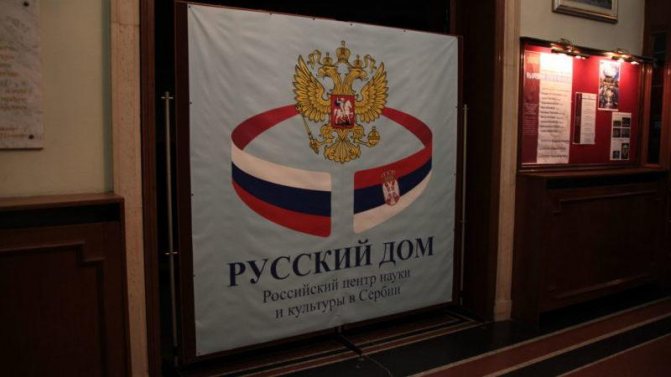
Ways to emigrate to Serbia
There are several ways to move to the republic. However, not all of them are suitable for potential immigrants.
Investments in the country's economy
A country recovering from the crisis needs investment. To obtain a residence permit, a foreigner must invest at least 300 thousand euros in the Serbian economy. The main advantage of investment is the absence of the need to permanently reside in the state.

The country needs investment.
Opening your own business
Business immigration is one of the most popular ways to move to Serbia. An entrepreneur must pay a state fee in the amount of:
- 35 euros (for company registration);
- 100 euros (for registration of an open or closed joint stock company).
Additionally, you must register an account with a local bank in the amount of:
- 500 euros (for a company);
- 10 thousand euros (for JSC);
- 25 thousand euros (for JSC).
Foreigners are recommended to buy a ready-made business. In this case, the immigrant does not need to obtain a business permit. A businessman who applies to register a company will be issued a residence permit for 3 months.
If the company does not turn out to be fictitious, the entrepreneur will receive a residence permit for 12 months.
Study in Serbia
Students from Russia are attracted not only by the low cost of education (from 1.5 to 4 thousand euros per semester). In Serbian universities you can obtain a European diploma, which allows you to find a job in EU countries. The student residence permit is valid for the entire period of study. To complete the document, you must provide a certificate of enrollment.
Training is not one of the recommended ways to move to the republic. Under a student residence permit, a foreigner has the right to stay in the country only for a limited amount of time. A specialist who fails to find a job during his studies will have to leave Serbia.

In Serbia you can get a European diploma.
Official employment
Employment is also an undesirable means of immigration. An employer has the right to hire a foreigner only if a Serbian citizen has not responded to the vacancy within 10 days from the date of publication of the vacancy. The head of an organization can employ a foreigner even when none of the local residents who apply meet the stated requirements.
If an immigrant plans to work in his specialty, he must undergo the procedure of nostrification (confirmation) of his diploma. The process may take several months. After receiving a work permit in a specialty, a foreigner will be issued a residence permit for 1 year, during which he must manage to find a job.
Family reunification
The program is used by minor children and spouses of Serbian citizens. Elderly parents who need care and do not have close relatives in their homeland can apply for a residence permit. The receiving party guarantees the provision of financial security and housing to its family member.

Family reunification is a program for minor children.
The applicant presents documents proving kinship and invitation of a relative living in the republic. After crossing the border, the foreigner must register with the local police station.
Marriage
A person who comes to Serbia to start a family with a citizen of the state crosses the border at the invitation of the bride or groom. The immigrant is issued a visa for 3 months, which can be extended for a similar period. After receiving a marriage certificate, you must apply for a residence permit.
If, after 6 months of stay in the country, a foreigner was unable to legalize relations with a Serbian citizen, he must write an application for official cohabitation. The visa will be extended for another 6 months. If after this period the wedding does not take place, the foreigner must leave the republic.
Buying a property
Residence permits are received by owners of any real estate on the territory of the state. Foreign citizens are prohibited from buying land in Serbia. The immigrant must prove his or her ability to pay and purchase health insurance. The cost of housing in the republic is considered one of the lowest in Europe. An apartment in the capital with one or two bedrooms costs no more than 20-25 thousand euros. Not only the owner of the property, but also his close relatives receive the right to reside in the country.

The purchase of real estate by foreign citizens is prohibited.
You need to submit an application for a residence permit to the cadastral service. It may take up to 21 days for documentation to be reviewed. You can submit an application after paying a deposit of 10% of the cost of housing. Foreigners are recommended to purchase houses and apartments through specialized agencies that employ Russian-speaking employees. These organizations provide the following services:
- assistance in choosing an object;
- registration at the police station;
- assistance in filling out documents and translating them into Serbian;
- payment of state duty;
- opening an account in a Serbian bank;
- preparation of tax documentation.
The real estate tax in Serbia does not exceed 0.4% per year of the value of the property.
Features for children and pensioners
In Serbia, there are no special programs for relocating pensioners and minors to permanent residence. Children go through the registration process together with their parents. Elderly citizens of the Russian Federation must provide evidence of their solvency. If a pensioner does not have enough funds, financial guarantees are provided by his relatives living in the republic.
The process of obtaining a residence permit
A residence permit (borawak in Serbian) is issued for 3-12 months. An application for renewal of a residence permit must be submitted 30 days before its expiration date. A foreigner who has issued a document must spend at least 2 months a year on the territory of the state. One of his trips abroad cannot last more than 6 months. After 5 years of residence under a residence permit, a migrant receives the right to apply for permanent residence.
List of documents
All certificates must be translated into Serbian and notarized. The package of documents for obtaining a residence permit includes:
- statement;
- passports (civil and foreign);
- documents on ownership of real estate or lease agreement;
- receipt of payment of state duty;
- 2 photos (3.5x4.5 cm);
- health certificate.
- bank account statement.
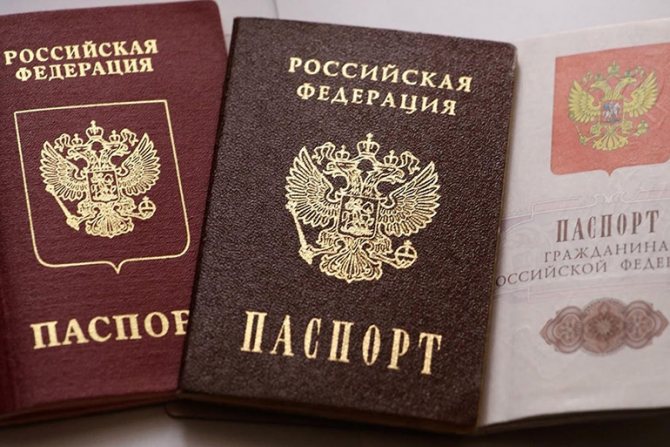
The package of documents includes passports.
You should also attach certificates confirming the legality of the foreigner’s stay in Serbia, for example, documents on business ownership. For persons under 18 years of age, a birth certificate is added.
If the father and mother are divorced, the other parent must give written consent for the child to live in Serbia.
Price for obtaining a residence permit
An immigrant pays 2 types of fees:
- 135 euros for receiving the application and its consideration;
- 68 euros for obtaining a permit.
Receipt times
The Migration Service takes up to 30 days to consider the application. The period may be extended due to a lack of documents or for other reasons.
Business registration

A migrant can apply for a residence permit, and then Serbian citizenship by registering his own business. Foreigners are allowed to open their own business on the territory of Serbia, subject to compliance with the relevant laws. A person can buy or rent real estate and locate his business there. Office rental is acceptable for a period of 12 months or more.
Registration of an LLC provides for the transfer of taxes to Serbia and provides the opportunity to move to the state. To do this, you should open an account in a Serbian bank and place funds for an annual residence in the country.
The state fee for opening an LLC is 35 euros. Authorized capital - 500 euros. If you want to register an OJSC, you will have to pay a state tax (100 euros) and prepare an authorized capital (10 thousand euros). For a closed joint-stock company, the state duty will also be 100 euros, but the amount of the authorized capital will be 25 thousand euros. All funds are paid in local currency (Serbian dinars).
Permanent residence is issued after 5-10 years of residence under a residence permit. It does not matter whether the company is functioning or not. To comply with the law, it is enough to register it according to the requirements of Serbia and pay taxes.
In addition to the above types of activities, a migrant can open an individual entrepreneurship. Before completing the paperwork, it is better to consult with a qualified lawyer. He will suggest ways to move to Serbia and options for obtaining Serbian citizenship.
Obtaining Serbian citizenship
The following have the right to apply for citizenship:
- Serbs living in other states. The applicant must be at least 18 years of age.
- Persons who married citizens of the republic. If the spouses divorced earlier than 3 years of marriage, the application for status will be rejected.
- Natives of the former Yugoslavia who lived on the territory of modern Serbia before the hostilities.
- Foreigners who have lived in the republic for at least 3 years on the basis of permanent residence. The application is accepted from an applicant who has reached the age of majority.
- Children whose father or mother is a Serbian citizen. Country of birth does not matter.
The decision to grant citizenship is made by the Ministry of Internal Affairs. You can apply at your place of residence. The package of documents includes:
- statement;
- a copy of a foreign passport;
- educational documents;
- birth certificate;
- certificate of no criminal record;
- 2 photos (3.5x4.5 cm);
- documents on family composition (if any);
- health certificate;
- short biography.
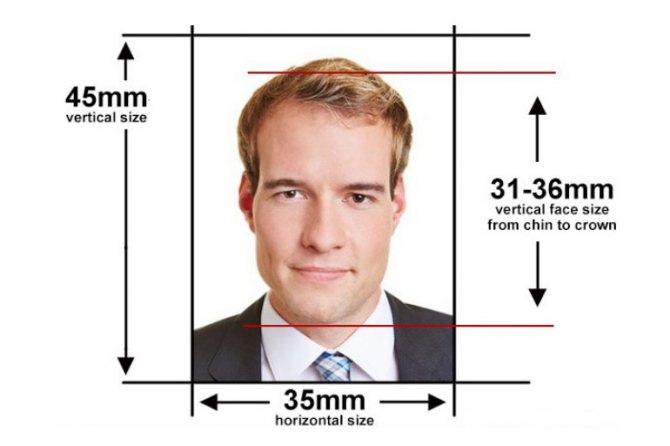
Photos are required to obtain citizenship.
For detailed information on applying for citizenship, visit mfa.gov.rs/en/consular-affairs/citizenship. The information is presented not only in Serbian, but also in English.
Salary level in the country
Salaries in Serbia depend on profession, region and skill level. Residents of Belgrade and Novi Sad have the highest incomes (on average 400-450 euros per month). People earn the least in Niš, Zrenjanin and Subotica (300-310 euros per month). The level of income depends on the demand for the profession. In 2019-2020 The country was experiencing a shortage:
- in healthcare workers;
- bank employees;
- insurance agents.
Representatives of these professions earn from 700 to 950 euros per month. The income of construction workers is considered high - up to 650 euros. The lowest salary is for teachers (up to 450 euros).
What if you move to Serbia in 2021?
Let's say our family moved to Serbia in 2014. It's 2021. Is it worth it now? What changed?
If you like the country, if you understand how to settle here, how to manage your income, I still think that moving to Serbia is a good option.
It is more suitable for those who do not have ambitions in terms of building a career (then it’s more likely to go to Germany with a Blue Card).
If there is no requirement to live at sea or in a country that is part of the EU.
If we talk about what has changed in the country since 2014, the country has changed a lot in appearance (for the better). There’s just a lot more money in the country and it’s noticeable.
If we talk about the rules of moving, then in 2021 a new law “On Foreigners” was adopted in Serbia. The rules for emigrating to the country are becoming more detailed and clearer. And there are more and more foreigners.
My books and webinars on Serbia
- To Serbia according to new rules in 2019-2020. Recording of the webinar
1,190.00 ₽
Add to cart
- Work and business in Serbia in 2019-2020. Recording of the webinar
1,190.00 ₽
Add to cart
- Real estate in Serbia in 2019-2020. Recording of the webinar
1,490.00 ₽
Add to cart
Reviews from Russian emigrants
Vitaly, 22 years old, Belgrade: “I study at a university in the capital. After moving I got a room in a hostel. The conditions are fine, but I don’t plan to stay in Serbia forever. The country is not rich. It is difficult for foreigners to find work. In a year, I will go to Italy to study under the student exchange program. Many Serbian students do this.”
Natalia, 33 years old, Subotica: “Several years ago I met my future husband while on vacation in Serbia. After moving to Subotica and getting married, she began studying the language. My husband helped me get a job. The adaptation went well. Serbia has its pros and cons, but there is no Russophobia here. The people are friendly and hospitable."
Alexander, 48 years old, Belgrade: “I moved to the Serbian capital 4 years ago with my wife and daughter, opened a chain of restaurants. The country is suitable for doing business. Belgrade is a beautiful and modern city. Thanks to the large number of tourists, I have no shortage of clients.”
Maria, 36 years old, Novi Sad: “Since I was 30 years old, I have been trying to find a way to move from the Russian Federation to Serbia. She saved up money and emigrated after buying real estate. I'm a freelancer. I had no problems finding a job. I am attracted to Serbia by the beauty of nature and the hospitality of the local people. However, I was unpleasantly surprised by the attitude towards women in this country. A Serbian woman is her husband's slave. She works hard and never complains."
Climate of Serbia
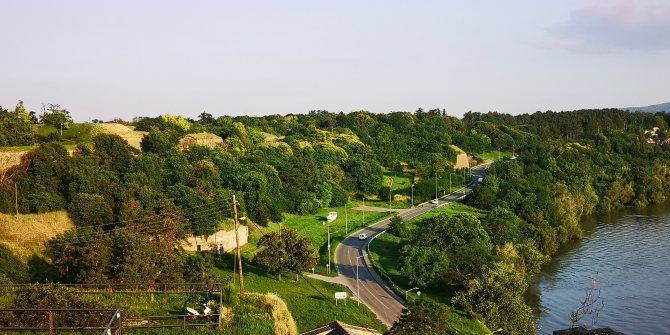
Serbia is a southern country. In summer it is hot or very hot (30, 35 and can be higher).
Winter is short, European. There may be snow and sub-zero temperatures. Or it may be that there is only snow for a week in winter.
Heavy rains come in the spring, autumn is long, dry, very beautiful and comfortable.
By the way, there are many sunny days throughout the year - almost 300 sunny days a year.
Snow, cold, gloomy skies and dampness - we already had enough of all this in our lives. Enough to want to live in the south and move to Serbia.
